Why Indigenous ‘Spirit Medicine’ Principles Must be a Priority in Psychedelic Research
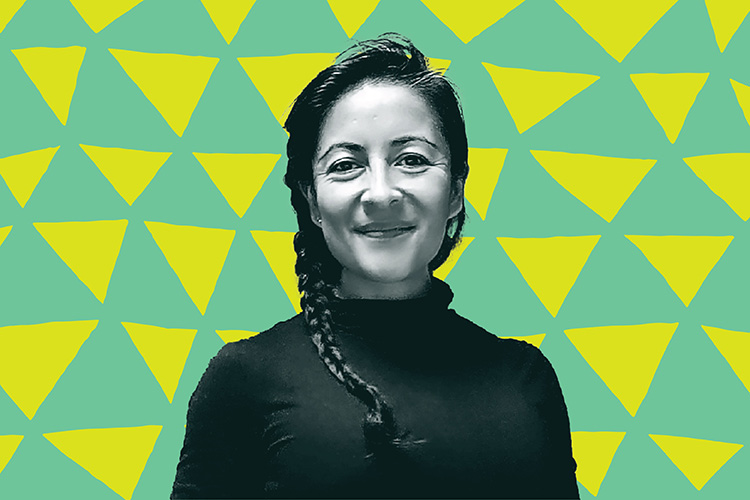
Berkeley Changemaker is a Berkeley News series highlighting innovative members of the campus community engaged in work and research that tackles society’s most pressing issues.
Yuria Celidwen was born into a family of Indigenous mystics, healers, poets and explorers from the highlands of Chiapas, Mexico.
“I grew up with one foot in the wilderness and another in the magical realism of Indigenous culture,” said Celdiwen, a native of Indigenous Nahua and Mayan descent. “My Elders’ songs and stories enthralled my childhood. They enhanced my mythic imagination and emotional intuition, which became the fertile soil where the seeds of kindness, play and wonder dig their roots.”

“[But] we carry intergenerational trauma, and also intergenerational bliss,” she added. A result of Indigenous communities’ historical colonial oppression, genocide and “the exploitation of our Lands and age-old traditions, and the resilient, Mother Earth-oriented and tightly weaved communities and traditions we preserve.”
Those great disparities, Celidwen said, are formative to the research and work she has pursued for the last two decades, collaborating and building coalitions with Indigenous communities from around the world to create community spaces and policy that promote Indigenous Peoples’ voices and their time-honored principles.
Today, as a senior fellow at UC Berkeley’s Othering and Belonging Institute, Celidwen is exploring how Western institutions can ethically approach the growing research and use of psychedelics as viable medical therapies. She recently led a study published in the journal The Lancet Regional Health — Americas.
The paper, “Ethical principles of traditional Indigenous medicine to guide western psychedelic research and practice,” highlights how the new Western psychedelic movement can embrace and collaborate with the Indigenous plant medicine traditions that preceded it.
“The authority of the Indigenous Peoples must be recognized and respected as equal holders of sophisticated systems of contemplative insight,” said Celidwen, who previously served as a liaison of Indigenous affairs at the United Nations. “Indigenous voices bring forth actions of reverence, kindness, and compassion. So, my research is committed to the reclamation, revitalization and transmission of our Indigenous wisdoms.”
A burgeoning industry
Psychedelic medicines — which are still federally criminalized in the U.S. — have been engaged as “Spirit medicines” by Indigenous communities around the world for centuries. Sacred Indigenous traditions include ceremonies that practice these medicines not only to heal people, Celidwen said, “but to heal our planet by opening the spiritual gateways to the Ancestors (past and emerging) and promote transcendence through deep connections with Nature, the Universe, and Spirit.”
Recently, in the West, these medicines have been used as therapies for depression, anxiety, addiction and post-traumatic stress disorder (PTSD), creating a burgeoning multibillion-dollar industry. Recreational use of psychedelic plants, like psilocybe mushrooms, peyote cactus and ayahuasca, have also created a market for Western psychedelic practitioners to charge thousands of dollars for facilitation.
These medicines are not about the human mind alone, they reveal Spirit, the very animating principle of Life.”
– Yuria Celidwen
According to the study, there are currently an estimated 30 million people who use psychedelics in the U.S. alone. And as financial backing continues to proliferate in Western institutions for psychedelic research, which includes over 350 registered psychedelic clinical studies, Celidwen said there are serious concerns from Indigenous communities about how the research of their Spirit medicines is conducted, and how Indigenous participation will be incorporated — if at all.
How will the West transform the sacred use of psychedelics? And how can reparations be directed to Indigenous communities for the appropriation of their time-honored medicines?
Celidwen answers these questions through her research with Indigenous practitioners, activists, scholars and lawyers from around the world — all well-versed in Indigenous medicine practices. They have formulated a set of ethical guidelines concerning traditional Indigenous medicines’ current use in the West.
“I see the lack of access to our own Indigenous medicine systems,” said Celidwen, “which continue to be dismissed, persecuted, blatantly extracted, exploited, and capitalized upon. … It became evident to me that it was crucial to bring together the voices of the traditions that have been mostly impacted by the appropriation of these Spirit medicines.”
Centering the ‘sacred act’
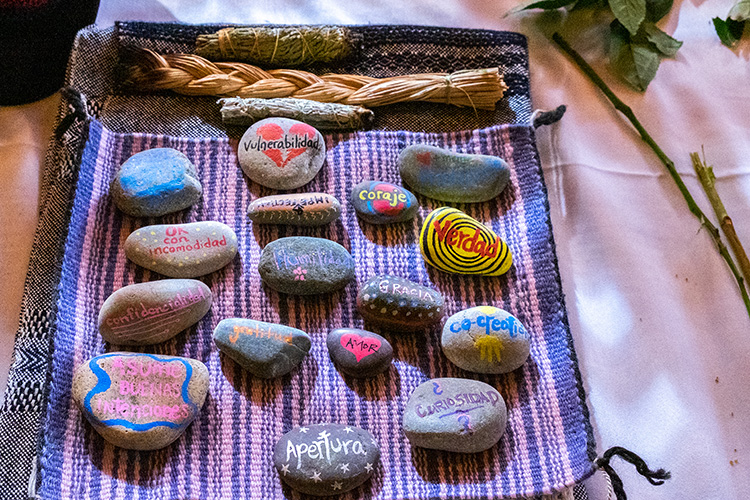
The group met virtually during the pandemic, and Celidwen said the panel discussed issues that have been deeply rooted in Indigenous communities. Such as the impact that cultural appropriation has had on their traditional medicines, and the lack of recognition these medicines have gotten for being sacred within Indigenous cultures.
Participants in the panel also addressed the various exclusionary policies their communities have faced in practicing their medicinal traditions, the rising carbon footprint to their Lands, and the impact Western “psychedelic tourism” has had on preventing Indigenous communities access to their own medicines.
The panel also repudiated any attempt at patenting Indigenous heritage.

Through her research, Celidwen said, it becomes apparent that Indigenous Peoples’ voices and leadership are absent from Western psychedelic research and practice. When Indigenous voices have been engaged, it has been merely symbolic, not benefitting Indigenous communities.
“Even the term ‘psychedelics’ is a Western notion that Indigenous communities do not agree with,” said Celidwen. “Western recreational use of our Spirit medicines have nothing to do with reflecting on the mind or spirit. It is not always a sacred act. The Western view says psychedelics manifest the human mind, but these medicines are not about the human mind alone, they reveal Spirit, the very animating principle of Life.”
The research led to a consensus of ethical Indigenous principles that Celidwen said outline eight critical elements — “Reverence, Respect, Responsibility, Relevance, Regulation, Reparation, Restoration and Reconciliation” — for psychedelic researchers to consider in their trials and practice.
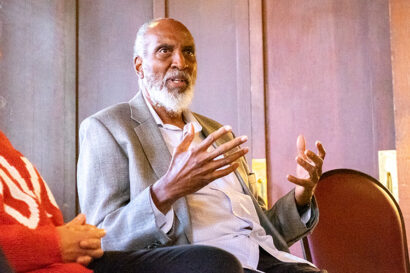
Those principles were then connected to specific problems Indigenous Peoples face because of the research and practice of psychedelics outside of Indigenous communities.
More importantly, Celidwen said, they present solutions.
And for Berkeley’s Othering and Belonging Institute Director john powell, there is no better time than now for “the bridging of those solutions” to be considered.
“It is remarkable how rich Indigenous traditions have been largely ignored in the study of human flourishing, and the positive interventions that make it possible,” powell said. “Dr. Celidwen’s research stands out in how it centers relationality, interdependence, mutuality and the meaning inherent in all living phenomena.”
From a place of ‘fierce kindness’
While her own life has been marked by discrimination, exploitation, extraction and extreme forms of violence and abuse, Celidwen said those experiences also reflect the greater disparities that Indigenous Peoples experience.
“Not only do we carry historical harm,” said Celidwen, “but the traumatic experiences keep being perpetuated by structures and systems of oppression and exploitation of our Lands, cultures and traditions, that end up ripping apart our hearts and tearing our bodies into pieces.”
That trauma, Celidwen said, is linked to contemporary issues affecting Indigenous communities that include a lack of access to the minimum for dignified living, healthcare, education, safety and security, and housing.
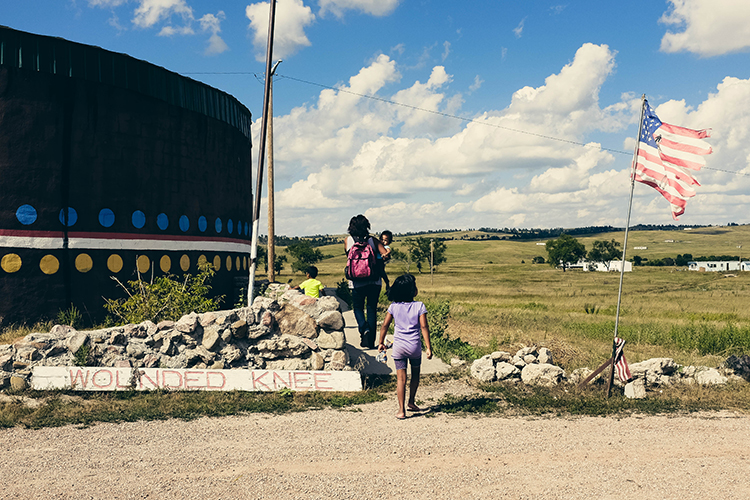
According to the study, while the psychedelic industry will potentially become a multibillion-dollar trade, there has been little to no health or economic return to Indigenous communities, who make up 6% of the world population and 30% of the extremely poor.
Indigenous people also live, on average, 20 years less than their non-Indigenous counterparts.
"It’s about love and a fierce kindness to guide people to realize and to wake up to our daily realities.”
– Yuria Celidwen
Further economic disparities that Celidwen’s research points to are the fact that Western psychedelic practitioners and facilitators can earn an average of $10,500 per service event, compared to Indigenous medicine practitioners, who earn between $2 and $150 for their services.
Indigenous women in particular, she said, lack access to platforms of influence in decision-making processes. But Celidwen said she has found that participating in the transmission of traditional Indigenous knowledge has helped her to preserve her Indigenous culture.
“It’s a way of reclaiming our places, and at the same time, it’s about love and a fierce kindness to guide people to realize and to wake up to our daily realities,” she said. “We must be open to ethical collaborations to come to solutions together, and to create bridges between us.”
Nourishing collaborations
To share these Indigenous perspectives, Celidwen has held several dialogues for academics, clinicians and Indigenous peoples from various backgrounds to gather and partake in, and to understand, traditional Indigenous ceremonies.
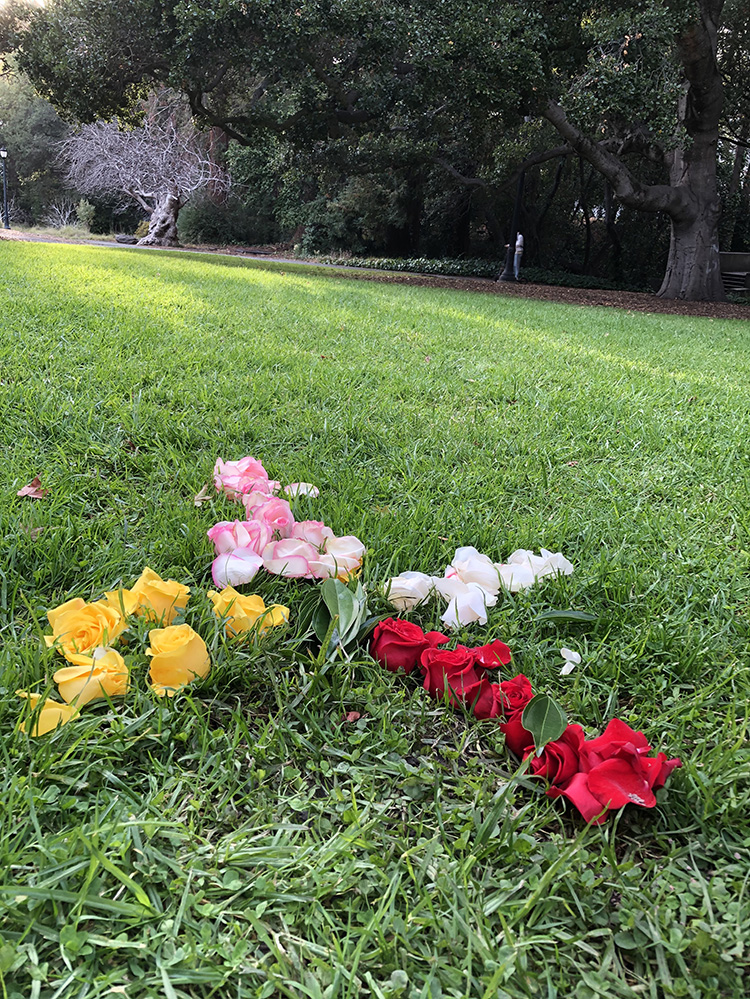
Last fall, Celidwen brought together Indigenous medicine practitioners from Mexico, Guatemala, Canada, Colombia, and El Salvador to meet with psychedelic researchers from Western institutions that included UC Berkeley, John Hopkins University, University of Wisconsin Madison, and UCSF.
The two-day event was held at Berkeley’s Faculty Club and included Indigenous ceremonies that were deeply rooted in building connections with Indigenous conceptions of “Spirit, Creator, and the Universe.” Self-discovery and reflection of “our Ancestors” was also incorporated into the conference, which promoted a free flow of ideas and discussions that addressed the absence of Indigenous Peoples in the Western psychedelic movement.
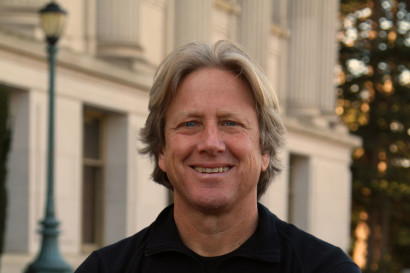
Dacher Keltner, a Berkeley psychology professor, attended the conference and said Celidwen’s ability to provide a nourishing, collaborative space for people from starkly different communities to have tough conversations about psychedelic research is changemaking.
“Dr. Celidwen has begun the kind of dialogues — and laid out the kind of principles — that will ensure that this new movement is not another colonialist resource extraction, but instead can move toward more reverential and mutually nourishing collaboration,” said Keltner, who is also director of Berkeley’s Greater Good Science Center. “It is seminal and necessary.”
For powell, Celidwen’s mere presence on campus as an Indigenous scholar helps broaden the discourse of Berkeley’s academic community. And her research, powell said, can transform culture, as evident in its integration into schools, health care settings, the judicial system, organizations and government agencies.
“Yuria’s work on Indigenous traditions and what they teach us about creating a world where everyone belongs will be transformative,” he said. “She has already had a significant impact on the way we think about bridging, an essential practice that helps deepen relationships across differences so we can jointly create structures that serve all of us.”
Celidwen continues to bring her research to Western institutions across the country, speaking at universities and colleges about the ways Indigenous principles and values can help the greater humanity “access an ever-expansive unfolding of a path of meaning and participation rooted in honoring all life.”
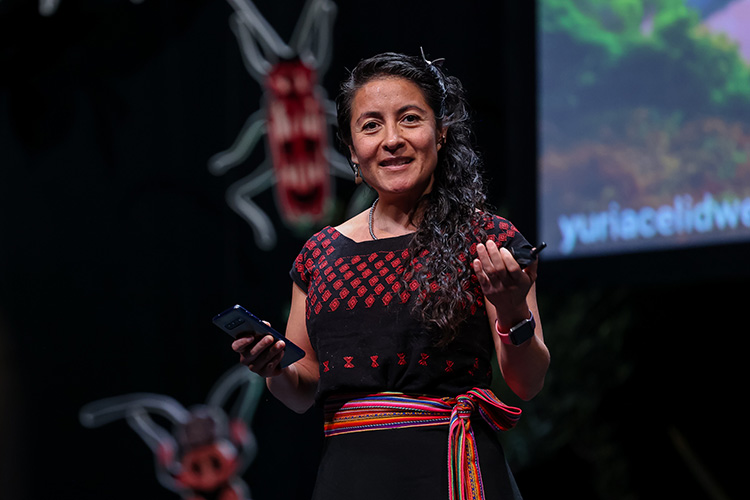
More recently, Celidwen spoke at the Bioneers Conference last month at Berkeley’s Zellerbach Hall, spreading her research and perspective of the “Ethics of Belonging of Indigenous Contemplative Traditions” with the hope, she says, that it will bridge and balance “an inequitable and separated world.”
“It has become evident that when we pay attention to the world around us, all we hear is urgency. It is time for community reflection,” she said. “We need to nourish a conscious social responsibility for the self, community and environment. And to be open to transcend beyond the individual and the material culture to embrace the Divine.”
